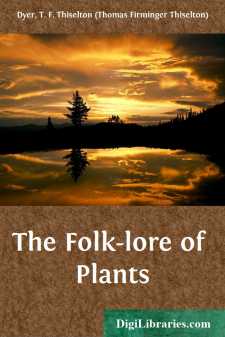Categories
- Antiques & Collectibles 13
- Architecture 36
- Art 48
- Bibles 22
- Biography & Autobiography 813
- Body, Mind & Spirit 142
- Business & Economics 28
- Children's Books 16
- Children's Fiction 13
- Computers 4
- Cooking 94
- Crafts & Hobbies 4
- Drama 346
- Education 46
- Family & Relationships 57
- Fiction 11829
- Games 19
- Gardening 17
- Health & Fitness 34
- History 1377
- House & Home 1
- Humor 147
- Juvenile Fiction 1873
- Juvenile Nonfiction 202
- Language Arts & Disciplines 88
- Law 16
- Literary Collections 686
- Literary Criticism 179
- Mathematics 13
- Medical 41
- Music 40
- Nature 179
- Non-Classifiable 1768
- Performing Arts 7
- Periodicals 1453
- Philosophy 64
- Photography 2
- Poetry 896
- Political Science 203
- Psychology 42
- Reference 154
- Religion 513
- Science 126
- Self-Help 84
- Social Science 81
- Sports & Recreation 34
- Study Aids 3
- Technology & Engineering 59
- Transportation 23
- Travel 463
- True Crime 29
T. F. Thiselton (Thomas Firminger Thiselton) Dyer
Thomas Firminger Thiselton Dyer (1848–1923) was a British author and folklorist known for his works on English folklore, customs, and history. He wrote numerous books, including "British Popular Customs, Present and Past" and "The Folk-Lore of Plants," exploring the traditions and beliefs of the English people. Dyer's writings often combined detailed research with accessible prose, making him popular among both scholars and general readers. His interest in folklore extended to international customs, with works like "Strange Pages from Family Papers" examining curious and unusual historical records.
Author's Books:
Sort by:
CHAPTER I.May the grass wither from thy feet! the woodsDeny thee shelter! Earth a home! the dustA grave! The sun his light! and heaven her God.Byron,Cain. Many a strange and curious romance has been handed down in the history of our great families, relative to the terrible curses uttered in cases of dire extremity against persons considered guilty of injustice and wrong doing. It is to such fearful...
more...
CHAPTER I. PLANT LIFE. The fact that plants, in common with man and the lower animals, possess the phenomena of life and death, naturally suggested in primitive times the notion of their having a similar kind of existence. In both cases there is a gradual development which is only reached by certain progressive stages of growth, a circumstance which was not without its practical lessons to the early...
more...



